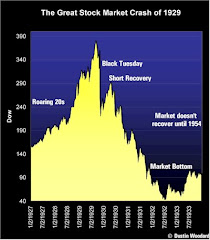Recently in California I had a chance to meet with Jack Dean. Jack runs a blog called Pension Tsunami he is also one of the key forces behind the California Foundation for Fiscal Responsibility they run the website California Pension Reform.
Jack was responsible for helping to uncover some of the worst pension abuse situations in California. His efforts also led to better monitoring and understanding of the pension debate. This debate has turned into a national issue. One of the key tools for pension reform is the disclosure of the levels of pension paid to retired public sector workers.
The Wall Street Journal reported on the efforts to disclose the problems behind public sector pensions. Fury Over Public Pensions Sparks Disclosure Lawsuits
Several state and local retirement funds have balked at disclosing the pensions of individual government workers, triggering lawsuits that claim taxpayers have the right to such information.
The showdown comes amid growing scrutiny of public-sector pensions as voters, many struggling amid the recession, increasingly question how tax dollars are spent in states and cities facing budget shortfalls and service cutbacks.
The California Foundation for Fiscal Responsibility, a group that advocates for pared-back pension benefits, sued the San Diego County retirement fund in August after it refused to provide the names of retirees collecting annual pensions of $100,000 or more. While other counties have released similar information, San Diego maintains that state law prohibits it from doing so.
In New York, the fiscally conservative Manhattan Institute's Empire Center recently filed lawsuits against New York City's police and firefighters' retirement systems, after the funds refused to release retiree names and pensions. Three other city funds have released the information, the center says.
The police fund considers the release of members' names "potentially dangerous" to former officers, who could face retribution for their work, as well as an invasion of privacy, said Jesse Levine, senior counsel at the New York City Law Department. The department is "in the process of resolving" the request regarding the firefighters' fund, Mr. Levine said.
Newspapers have also been denied requests for pension data in states including Ohio, where the legislature is considering spending millions to shore up the public retirement system.
"Taxpayers should have a good understanding of how the system works," said Doug Oplinger, managing editor of the Akron Beacon Journal, one of the papers rejected in a request for information besides specific names.
Some advocates of disclosure say the funds are hiding behind legal arguments to avoid scrutiny, especially in the wake of the recent Bell, Calif., controversy that revealed the city's administrator was earning close to $800,000 a year. Based on that salary, it has been estimated that he stands to collect at least a $600,000 annual pension from the California Public Employees' Retirement System, or Calpers. He stepped down in late July amid a public outcry, and his pension is on hold pending a review by Calpers.
California State Controller John Chiang recently announced he is requiring all California cities and counties to report compensation for current public employees, which he plans to post on his website in November.
"When does it stop being the public's money," he said, "and when does it start being [state workers'] money?"The initiative of the CFR has led to fights in other states over the disclosure of pension information.
The success of these fights have been mixed in terms of the information or disclosure that has been passed along to taxpayer groups. But one thing is clear is that the disclosure that has occurred has uncovered lots of pension malfeasance.
- An advocacy group sued the San Diego County pension fund for refusing to provide the names of retirees with annual pensions of $100,000 or more.
- The Manhattan Institute recently filed lawsuits against New York City's police and firefighters' retirement funds for refusing to release retiree names and pensions.
- Five Ohio pension funds rejected a request for pension data from a coalition of eight local newspapers.
Public or Private
The debate rages on whether the personal pensions received by retirees should be disclosed.
Pension disclosure has permitted the uncovering of taxpayer abuse. The most blatant case is in Bell City California. California city manager's pension could top $30 million Other debates and articles are listed here.
Find them, fire them
New Hampshire Retirement System thumbs its nose at public
Public pensions: Our right to know
Ohio public pension system must undergo public scrutiny
Hundreds of former NYC educators pulling in six-figure pensions, even scandal-riddled principal
Canada needs this pension disclosure
In Ontario the Sunshine Act shines light onto the salaries of public sector employees. Most employees will collect more in pensions that they earned in salary. Many will collect pensions for longer than they were employed.
Ontario has dozens of retirees earning over $200,000 or $300,000 per year in pensions. There are thousands, if not tens of thousands (including all levels of government) who earn more than $100,000 per year in pensions, in Canada.
The limit for disclosure under the Ontario Sunshine Act is $100,000 This same bright light needs to be shined onto pensions as well.
Bill Tufts
Fair Pensions For All




I totally agree that Canada needs Pension Disclosure. But how to go about it?
ReplyDeleteThis is a wonderful post. The things given are unanimous and needs to be appreciated by everyone.
ReplyDelete--------
dwilson1707
High Yield Savings Account